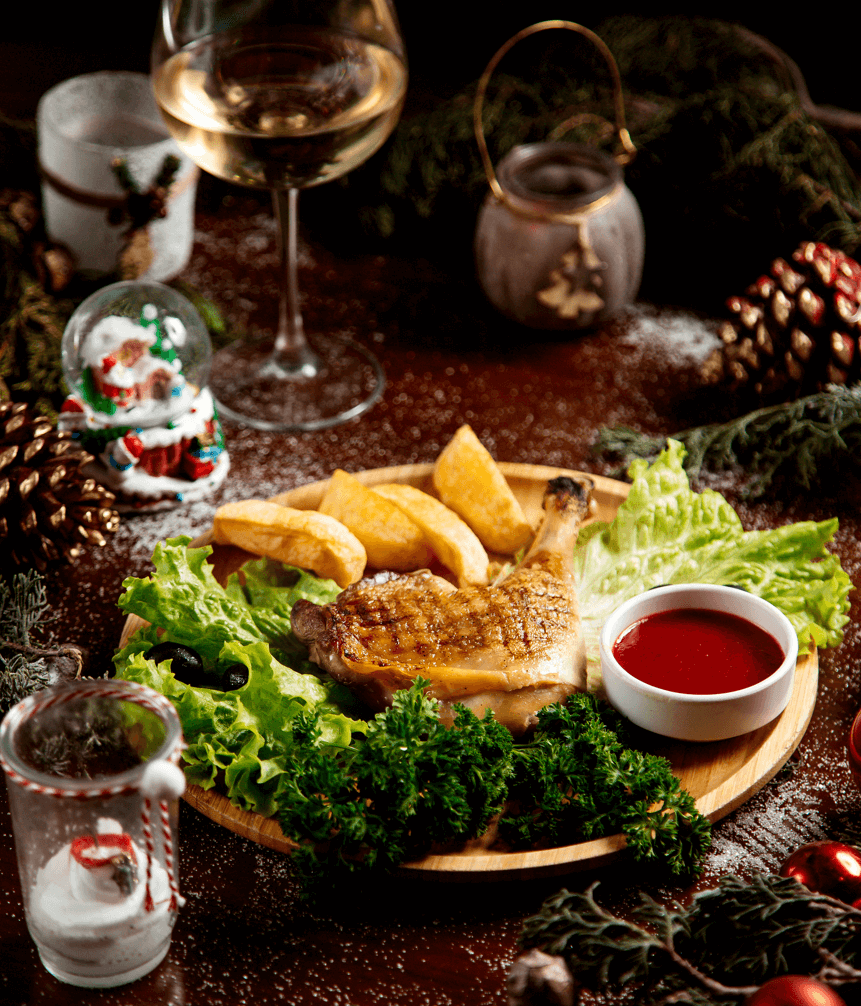Just as a ship needs a well-navigated course to reach its destination, your gallbladder requires the right nutritional path to maintain its health throughout the year.
In this tested diet tips for gallbladder health,’ you’ll find a community that understands the importance of supporting one another in achieving a thriving, gallbladder-friendly lifestyle. You’re not alone in your journey to better health; we’re here to guide you with practical tips that fit seamlessly into your daily routine.
Embrace a diet rich in fruits, vegetables, and whole grains, and you’ll set sail for smoother digestive waters. Let’s explore together how mindful eating can keep your gallbladder in shipshape and bolster your overall well-being.
Diet Tips For Gallbladder Health – Key Takeaways
- Consuming a gallbladder diet rich in high-fiber fruits and vegetables, whole grains, and vegetable proteins can prevent gallstones.
- Opting for low-fat options and including olive oil as a healthy fat source is beneficial for gallbladder health.
- Minimizing or avoiding foods high in fat, such as fried items and those cooked with hydrogenated oils, is important for maintaining gallbladder health.
- Staying hydrated by drinking enough water throughout the day helps maintain proper bile flow and prevents gallstone formation.

Understanding Gallbladder Function
Your gallbladder, a small organ tucked beneath your liver, stores a significant amount of bile that’s crucial for digesting fats and maintaining a healthy digestive system. Understanding gallbladder function is key to fostering a sense of community and supporting each other’s health.
The foods you choose, particularly your dietary patterns involving fat intake, can significantly affect bile flow and gallbladder health.
Consuming too many high-fat dairy products may increase your risk of gallstones, which can lead to inflammation of the gallbladder. To promote optimal function, focus on healthy fats and avoid foods that may strain this vital organ.
Foods That Promote Health
Many foods can bolster your gallbladder health, including those packed with fiber and essential nutrients. Embracing a gallbladder diet rich in high-fiber fruits and vegetables, whole grains, and vegetable proteins can be your first step toward preventing gallstones.
Opt for low-fat options and include olive oil as a healthy fat source. These choices aren’t just good for your gallbladder; they help maintain a healthy weight, too.
Evidence shows that a diet abundant in these foods reduces cholesterol absorption, which is key to gallstone prevention. Remember, you’re not just eating to satisfy hunger—you’re nourishing a community within your body that craves balance and wellness.
Now, let’s gently shift focus to foods you might consider minimizing or avoiding for your gallbladder’s sake.

Foods to Minimize or Avoid
As you transition to a gallbladder-friendly diet, it’s crucial to limit certain foods that can exacerbate gallbladder issues.
Foods high in fat, such as fried items and those cooked with hydrogenated oils, should be minimized as they may increase cholesterol saturation in your bile, leading to gallstone formation.
A diet high in saturated and trans fats, found in processed meats and red meat, can also provoke gallbladder distress.
It’s wise to steer clear of refined carbohydrates, which are known to contribute to rapid weight loss and gallbladder problems. Likewise, certain high-consumption foods like sugar-laden snacks and simple carbs can trigger complications.
Importance of Hydration
In light of your gallbladder’s needs, it’s crucial you’re drinking enough water to maintain proper bile flow and prevent gallstone formation. Hydration supports your journey toward a healthier you by ensuring your digestive system functions smoothly.
Here’s how you can incorporate hydration into your routine for gallbladder health:
- Aim for consistent water consumption throughout the day, not just when you feel thirsty.
- Choose low-fat dairy products and vegetable oils, which promote hydration and gallbladder health.
- Include fruits and vegetables high in water content and dietary fiber in your diet.
- Pair fluid intake with regular exercise to maintain a healthy weight, further helping prevent gallstones.
As you prioritize hydration, let’s explore how gallbladder-friendly meal planning can become part of your daily life.
Gallbladder-Friendly Meal Planning
Considering your gallbladder’s well-being, you’ll want to structure your meals around gallbladder-friendly foods that support its function and prevent discomfort.
Aim to maintain a healthy weight by integrating fresh foods high in dietary fiber, like fruits, vegetables, and whole grains. These are excellent sources of fiber, which can help to prevent gallstones.
Choose lean proteins from poultry, fish, or a vegetarian diet, which are low in fat and kinder to your gallbladder than high-fat alternatives. Incorporate healthy fats from olive oil, avocados, and nuts in moderation. Limit dairy that’s high in fat and opt for smaller, more frequent meals.
Recognizing Gallbladder Symptoms
You should be vigilant for symptoms like severe abdominal pain and yellowing skin, as they may signal gallbladder issues. When you’re part of a community that cares for its health, it’s crucial to recognize the signs of potential gallbladder problems:
- Persistent pain in the upper right abdomen may indicate gallbladder pain or gallstone disease.
- Signs of a gallbladder attack, such as fever, chills, and nausea.
- Changes in skin or eye color point to blockages in the common bile duct.
- Brown-colored urine or other digestive changes can be symptoms of gallbladder disease.
Understanding these gallbladder symptoms is the first step in addressing your gallbladder health. Let’s move on to how to seek medical advice when these signs appear.
Seeking Medical Advice
When symptoms of gallbladder distress arise, it’s essential to consult your doctor for a proper diagnosis and tailored treatment plan. Your doctor can help you understand whether you’re at risk of gallbladder disease and advise on how to reduce this risk.
Maintaining a healthy weight through balanced dietary patterns, particularly those low in high intake of fat and rich in fiber, is crucial.
If you’re unsure where to start, seeking medical advice from a registered dietitian can be invaluable. They’ll guide you to prevent nutrient deficiencies that may harm gallbladder health.
Final Note From Dr. Rajarshi Mitra
As you embrace these diet tips, imagine feeling lighter and more energized, just like Sarah, who, after adopting a plant-rich, balanced diet, waved goodbye to her gallbladder discomfort.
Remember, your choices directly impact gallbladder health. Stay hydrated, choose wisely, and listen to your body.
If symptoms persist, seek medical advice. Here’s to a year of mindful eating and a happy gallbladder!
Ask Dr. Rajarshi Mitra – FAQs
What Diet Is Best for Gallbladder Problems?
You’ll want a diet with high-fiber options, lean protein sources, and gallbladder-friendly fats. Stay hydrated, eat small meals, and choose low-fat dairy. Avoid trigger foods, and don’t fall for gallbladder flushing myths.
What Foods Are Good for a Gallbladder Cleanse?
For a gallbladder cleanse, you’ll want to eat gallbladder-friendly fruits, high-fiber veggies, and lean protein sources. Sip herbal detox teas, choose antioxidant-rich foods, and incorporate bile-boosting nutrients with anti-inflammatory spices. Remember hydration’s importance!
What Is a Good Breakfast for Gallbladder Problems?
For gallbladder issues, start your day with gallbladder-friendly cereals or whole-grain toast. Include egg whites scramble, and fresh fruit salads. Opt for low-fat yogurts and almond milk smoothies to nourish your body. In addition to these breakfast options, consider incorporating lean proteins such as grilled chicken or fish into your lunch and dinner. When planning holiday meals and gallbladder health, focus on fresh vegetables and healthy fats, like avocados or olive oil, to create balanced dishes. Staying hydrated with plenty of water and herbal teas can also support your digestive system and overall wellness.
What Not to Drink With Gallbladder Problems?
You should avoid fizzy drinks, sugary beverages, acidic juices, and high-fat milkshakes. Cut back on caffeine and alcoholic drinks, steer clear of energy drinks, and watch for dairy sensitivity due to artificial sweeteners and concentrated fruit.



















